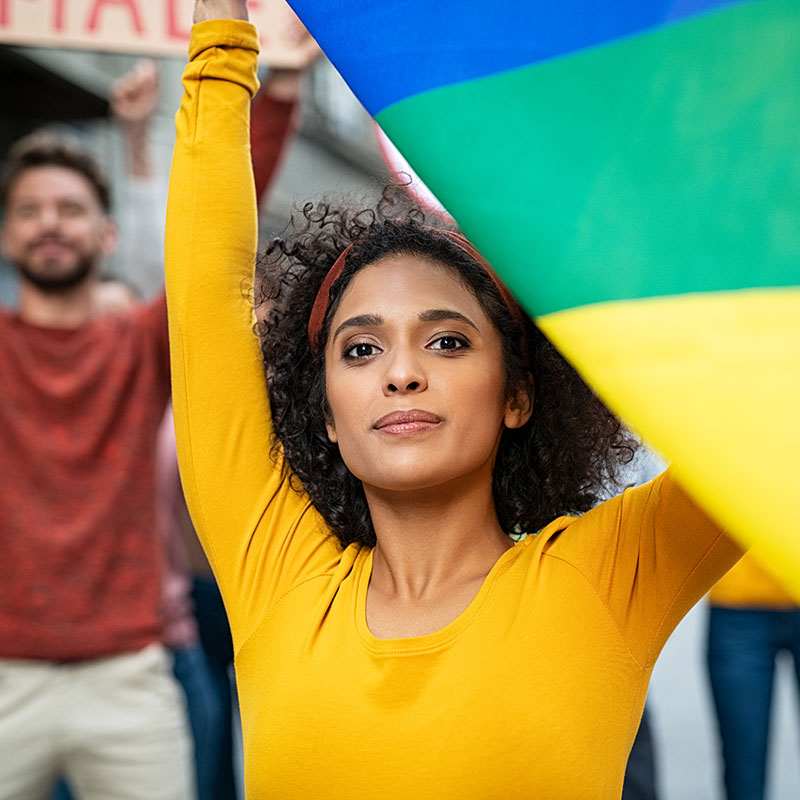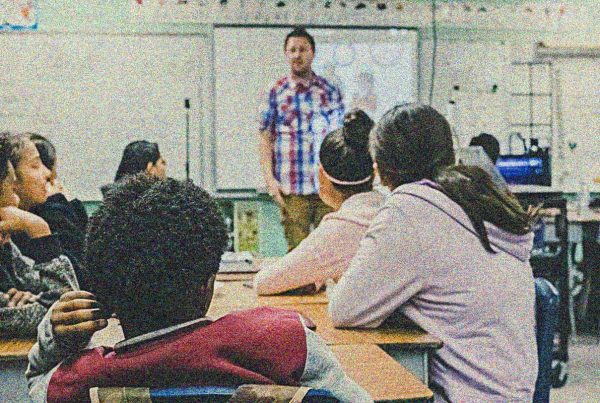TORONTO – FOR IMMEDIATE RELEASE
Federal Leaders Must Commit to Protecting People of Canada’s Rights
Today, more than 50 organizations, human rights advocates, and legal experts released an open letter urging all federal party leaders to commit to a public consultation on the notwithstanding clause within six months of forming a new government.
This is a critical moment for Canada’s democracy, and action is needed now.
For decades, the notwithstanding clause—Section 33 of the Canadian Charter of Rights and Freedoms—was rarely used. But in recent years, some provinces have used this clause to:
- Block education workers from striking;
- Ban some public employees from wearing religious symbols;
- Restrict services for non-French speakers;
- Prevent trans and non-binary youth from using their chosen names and pronouns without parental consent; and
- Arbitrarily limit third party political advocacy before elections.
This disturbing trend is gaining momentum. More and more politicians are signaling their willingness to use the notwithstanding clause to strip people of their rights.
People of Canada deserve a say in how their rights are protected. That’s why we’re calling on federal leaders to commit to a national conversation on the notwithstanding clause. Our constitutional rights depend on it.
The joint letter has been signed by:
Organizations:
- Amnesty International Canada (English speaking)
- Amnesty International Canadian (French-speaking)
- Assembly of First Nations, 2SLGBTQQIA+ Council
- Black Legal Action Centre
- Canadian Alliance to End Homelessness
- Canadian Association of Refugee Lawyers
- Canadian Civil Liberties Association
- Canadian Union of Public Employees
- Centre For Free Expression
- Charter Committee on Poverty Issues
- Colour of Poverty – Colour of Change
- David Asper Centre for Constitutional Rights, University of Toronto
- Democracy Watch
- HIV & AIDS Legal Clinic Ontario (HALCO)
- Ligue des droits et libertés
- Mississauga Community Legal Services
- National Council of Canadian Muslims
- Ontario Coalition for the Rights of Homeless People
- Ontario Council of Agencies Serving Immigrants (OCASI)
- Open Media
- Section 1
- Social Rights Advocacy Centre
- South Asian Bar Association of Toronto
- South Asian Legal Clinic of Ontario
- The 519 Church Street Community Centre
- Waterloo Region Community Legal Services
- Women’s Legal Education & Action Fund (LEAF)
Individuals:
- Natasha Bakht, Professor, Faculty of Law, University of Ottawa
- Stéphane Beaulac, Professor, Faculty of Law, University of Montreal
- Peter L. Biro, Founder and President, Section 1, Senior Fellow, Massey College
- Michèle Biss, Executive Director, National Right to Housing Network
- Suzanne Bouclin, Professor, Faculty of Law, University of Ottawa
- Lise Brun, Postdoctoral Fellow, Faculty of Law, Laval University
- Diana Chan McNally, Community Worker and Fellow, Maytree
- François Crépeau, Professor, Faculty of Law, McGill University
- Éloïse Décoste, Professor, Faculty of Law, Civil Law Section, University of Ottawa
- Martha Jackman, Professor Emerita, Faculty of Law, University of Ottawa
- Michael Lynk, Professor Emeritus, Faculty of Law, Western University
- Frédéric Mégret, Chaire Hans & Tamar Oppenheimer in Public International Law, McGill University
- Karine Millaire, Professor, Faculty of Law, University of Montreal
- Vrinda Narain, Associate Professor, Faculty of Law, McGill University
- Rory Nisan, City and Regional Councillor, Deputy Mayor with Portfolio, and Chair, Ontario Coalition for the Rights of Homeless Peoples
- Lukas Oakley, County of Brant Councillor
- Debra Parkes, Professor & Chair in Feminist Legal Studies, Peter A. Allard School of Law, University of British Columbia
- Bruce Porter, Executive Director, Social Rights Advocacy Centre, Maytree Fellow
- Marion Sandilands, Professor, Faculty of Law, University of Ottawa
- Penelope Simons, Professor and Gordon F. Henderson Chair in Human Rights, Faculty of Law, University of Ottawa
- Andrea Talarico, Professor, Faculty of Law, Civil Law Section, University of Ottawa
- Pierre Thibault, Deputy Dean and Secretary, Faculty of Law, Civil Law Section, University of Ottawa
- Christopher Waters, Professor, Faculty of Law, University of Windsor
- Margot Young, Professor, Allard School of Law, University of British Columbia
Selected Quotes:
“The growing use of the notwithstanding clause to trample civil liberties and human rights is a threat to our most basic rights and freedoms. Now is the time for federal political party leaders to listen to people of Canada’s concerns and to stand up for their rights.” – Anaïs Bussières McNicoll, Director of the Fundamental Freedoms program, Canadian Civil Liberties Association.
“We must always be vigilant to protect our freedom and liberties. It should never become a reality in Canada that the notwithstanding clause is used to deny someone due process or subject them to cruel and unusual punishment.” – Shakir Rahim, Director of the Criminal Justice Program, Canadian Civil Liberties Association.
“A more equitable and socially just society depends on strong constitutional protections for fundamental freedoms and human rights for all. The increasing willingness to compromise those rights and freedoms by invoking the notwithstanding clause puts our democracy at risk.” – James L. Turk, Director of the Centre for Free Expression at Toronto Metropolitan University.
“The Canadian Charter is an essential tool for the rule of law, not a burden or an obstacle like some governments have been depicting it in the last couple of years. All Canadians should be very concerned about the use of the notwithstanding clause, infringing on our rights and freedoms and overall weakening the Charter itself.” – Laurence Guénette, Coordinator, Ligue des droits et libertés.
“Optional rights are not rights at all. For the Charter to continue having meaning in an era of increasing polarization and social and economic turmoil, all level of government must respect and abide by the Charter’s text and its spirit.” – Matt Hatfield, Executive Director, Open Media
“When government restricts rights and freedoms in a free and democratic society, it has an obligation to justify the restriction on a standard that demonstrates a respect for the very rights in issue. The notwithstanding clause is being used to deprive aggrieved citizens of the ability to require any such justification from their governments. A constitution that fails to make the inherent dignity of each person a justiciable constraint on the exercise of public authority is not befitting that of a liberal democracy.” – Peter L. Biro, Founder and President, Section 1.
“2 Spirits were here long before there was a Canada and we have survived many attempts by Western religions and governments to erase us from our lands! This attack continues with governments using the Notwithstanding Clause to strip us of our rights given to us by the Creator. We need to have a serious discussion about this fundamental flaw of our Charter of Rights and Freedoms and how to protect the most vulnerable who suffer from it!” – Duane Gastant’ Aucoin, Chair, Assembly of First Nations 2SLGBTQQIA+ Council.
About the Canadian Civil Liberties Association
The CCLA is an independent, non-profit organization with supporters from across the country. Founded in 1964, the CCLA is a national human rights organization committed to defending the rights, dignity, safety, and freedoms of all people in Canada.
For the Media
For further comments, please contact us at media@ccla.org.





